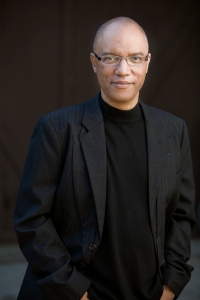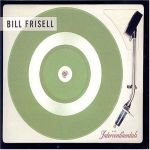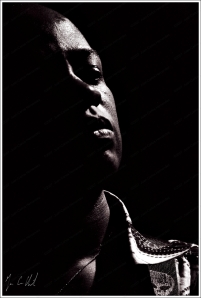“I’ve always gravitated towards music that tells a story.”
Billy Childs has played piano with some of the best in the business, from his beginnings as a working musician with J.J. Johnson and Freddie Hubbard all the way to one of his current recurring gigs, touring and recording with renowned trumpet player Chris Botti. His piano artistry is at the heart of the Billy Childs Ensemble, his core group of musicians on his Grammy Award-winning Lyric — Jazz-Chamber Music Vol 1 and his 2011 Grammy-nominated Autumn: In Moving Pictures — Jazz-Chamber Music Volume 2 ArtistShare CDs.
As important as Childs’ virtuosic musicianship is to his own success and that of his collaborators, it’s just one part of his identity as an artist. Billy Childs is very much in demand as a composer and arranger and his compositions form the heart of his jazz-chamber music albums. Billy talked with me about the influences and inspiration that go into his compositions, and their ultimate goal.
“I’ve always loved composing and I’ve pretty much always looked at myself as a composer as well as a pianist. I composed my first real piece of music when I was 16 or 17 . It was something that I just all of a sudden discovered, ‘Wow, I like doing this, and it makes sense to me, how to do this.’
“I guess that the music of the late 60’s and early 70’s was highly influential on my concept as a musical voice. The fusion era – Return To Forever; Weather Report; Emerson, Lake, and Palmer; Gentle Giant.
“Allan Holdsworth was another icon who kind of had a profound influence on me. I was intrigued by his harmonic sense, which is one of the most sophisticated systems I’ve ever checked out.
“It was an era where you had rock connecting with classical music, jazz merging with funk, Indian music combined with rock — an era of, perhaps, unprecedented inter-genre respect and tolerance. This informs my music to this day, and has inspired my desire to organically bring together classical music and jazz.”
—
“The compositional process that I use — and ultimately, what inspires me — depends on the composition, or rather, the intent of the composition. Sometimes I find it necessary to look inward, in order to express some sort of inner darkness or deeply buried emotion. Sometimes it’s the external world that inspires me — things in nature. Trying to recreate a beautiful natural scenario in music, just as French Impressionism does.
“When it comes to melody — a component of the music that I feel is of the utmost importance — I wait for it to come to me. A beautiful melody, like a beautifully constructed sentence, is something that I cannot manufacture or rush. It has to come from the soul and, I believe, it makes itself evident. To me, it is a skill that cannot be taught in a classroom; it’s definitely the most difficult aspect of composing.
“The main goal for me is always to make a dramatic statement with my music, one that will make the listener feel the drama and have it relate to his or her own experience.”
Next – from “Lunacy” to the Dorian Wind Quintet to The Calling, Billy Childs talks about his growth and movement towards his jazz-chamber music concept.
Previously – The Music of Billy Childs – Freddie Hubbard Shows the Way




